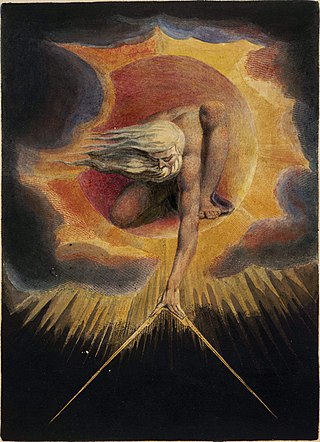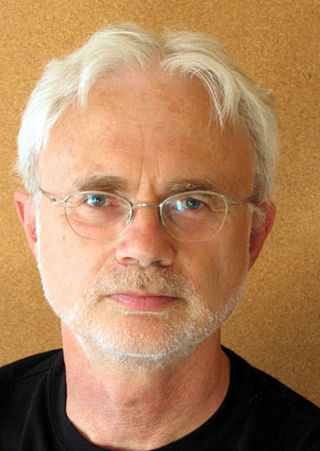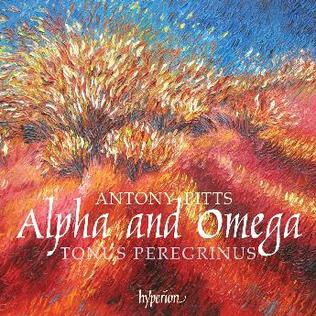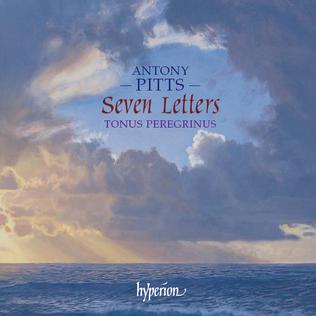Related Research Articles

The Creation is an oratorio written in 1797 and 1798 by Joseph Haydn, and considered by many to be one of his masterpieces. The oratorio depicts and celebrates the creation of the world as narrated in the Book of Genesis.

Elijah, Op. 70, MWV A 25, is an oratorio by Felix Mendelssohn depicting events in the life of the Prophet Elijah as told in the books 1 Kings and 2 Kings of the Old Testament. It premiered on 26 August 1846.
The BBC Symphony Chorus is a British amateur chorus based in London. It is the dedicated chorus for the BBC Symphony Orchestra, though it performs with other national and international orchestras.

Howard Lindsay Goodall is an English composer of musicals, choral music and music for television. He also presents music-based programmes for television and radio, for which he has won many awards. In May 2008, he was named as a presenter and "Composer-in-Residence" with the UK radio channel Classic FM. In May 2009, he was named "Composer of the Year" at the Classic BRIT Awards.

Robert Chilcott is a British choral composer, conductor, and singer, based in Oxfordshire, England. He was a member of the King's Singers from 1985 to 1997, singing tenor. He has been a composer since 1997.

El Niño is an opera-oratorio by the contemporary American composer John Adams. It was premiered on December 15, 2000, at the Théâtre du Châtelet in Paris by soloists Dawn Upshaw, Lorraine Hunt Lieberson, and Willard White, the vocal ensemble Theatre of Voices, the London Voices, La Maîtrise de Paris, and the Deutsches Symphonie-Orchester Berlin, with Kent Nagano conducting. It has been performed on a number of occasions since, and has been broadcast on BBC Television.

Ecce Cor Meum is the fourth classical album by Paul McCartney. The album was released on 25 September 2006 by EMI Classics. An oratorio in four movements, it is produced by John Fraser, written in Latin and English, and scored for orchestra and boys and adult choir. The oratorio was partly inspired by McCartney's wife Linda. It is also the only classical album by McCartney that was not released on vinyl.

The Prodigal Son is an oratorio by Arthur Sullivan with text taken from the parable of the same name in the Gospel of Luke. It features chorus with soprano, contralto, tenor and bass solos. It premiered in Worcester Cathedral on 10 September 1869 as part of the Three Choirs Festival.
NOTUS, formerly the Contemporary Vocal Ensemble, at the Indiana University Jacobs School of Music, is the only university-based vocal group in the United States exclusively dedicated to the study and performance of vocal and choral repertoire written after 1900. It includes singers, composers, young scholars and instrumentalists chosen for their special interest in the music of our time. Depending on the repertoire, the ensemble adjusts its size to perform solo vocal, chamber choral and large oratorio-like compositions.
John Pitts is a British composer, born in Surrey in 1976.
Antony Pitts is an international composer, conductor, and producer.
Tonus Peregrinus is a British vocal ensemble specialising in early music and contemporary sacred music, especially that of founder and director, Antony Pitts. Established in 1990, the ensemble have recorded numerous CDs for Naxos, their first winning the Cannes Classical Award, and two albums of Antony Pitts' music for Hyperion Records – Seven Letters and Alpha and Omega. Their latest album, Music from the Eton Choirbook, was recorded using a new microphone technique developed by NRK engineer Geoff Miles.

Alpha and Omega is Tonus Peregrinus's second album of unaccompanied choral works by Antony Pitts released on Hyperion Records. The album contains the coda from the oratorio Jerusalem-Yerushalayim and the complete cycle of The I AM Sayings of Jesus. Tracks from the album have been broadcast on BBC Radio 3 and Classic FM in the UK.

Seven Letters is Tonus Peregrinus's first album of unaccompanied choral works by Antony Pitts released on Hyperion Records. The album contains the only-known complete setting of the seven letters from the Book of Revelation. Tracks from the album have been broadcast on BBC Radio 3, and the opening work Adoro Te was sung at the memorial for Alexander Litvinenko in 2006.
Peter Gregory Rose is a conductor, composer, arranger, and music director. He has conducted orchestral, choral and ensemble premieres throughout Europe and the Far East.
Ēriks Ešenvalds is a Latvian composer, mainly of choral music. From 2011 to 2013 he was Fellow Commoner in Creative Arts at Trinity College, University of Cambridge.
Washington, D.C., and its environs are home to an unusually large and vibrant choral music scene, including choirs and choruses of many sizes and types.
Hyo-Won Woo is a South Korean composer, especially of choral music. She uses elements from both Korean music and Western contemporary composition techniques.

Die Auferstehung und Himmelfahrt Jesu is an oratorio by Carl Philipp Emanuel Bach to a text by Karl Wilhelm Ramler on the subject of the resurrection and ascension of Jesus Christ. The first documented performance evidently took place in 1774, and was first publicly performed in 1778; it was further revised between 1778 and 1780. Along with the other oratorios that CPE Bach composed, Die Auferstehung und Himmelfahrt Jesu has been described as being "among the most important Protestant vocal works of the second half of the 18th century".
References
- ↑ "ANTONY PITTS – composer | conductor | producer".
- ↑ "Jerusalem-Yerushalayim programme-note from first performance" (PDF). Archived from the original (PDF) on 2011-07-07. Retrieved 2011-03-05.
- ↑ "Jerusalem-Yerushalayim synopsis" (PDF). Archived from the original (PDF) on 2011-07-07. Retrieved 2011-03-05.
- ↑ "Jerusalem-Yerushalayim full libretto" (PDF). Archived from the original (PDF) on 2011-07-07. Retrieved 2011-03-05.
- ↑ "June 2008 a Love Story and a True Story". Archived from the original on 2011-07-28. Retrieved 2010-05-26.
- ↑ "review of first performance etc" (PDF). Archived from the original (PDF) on 2011-07-07. Retrieved 2011-03-05.
- ↑ "Choral Arts Presents an American Premier (Concert)". Archived from the original on 10 May 2012.
- ↑ "Choir of London recent projects". Archived from the original on 2011-11-13. Retrieved 2010-05-26.
- ↑ Jerusalem-Yerushalayim - An ancient tale, a unique city, a new oratorio
- ↑ "JERUSALEM-YERUSHALAYIM - an oratorio for our times - double album". Archived from the original on 2013-08-04. Retrieved 2013-08-13.
- ↑ new double album release